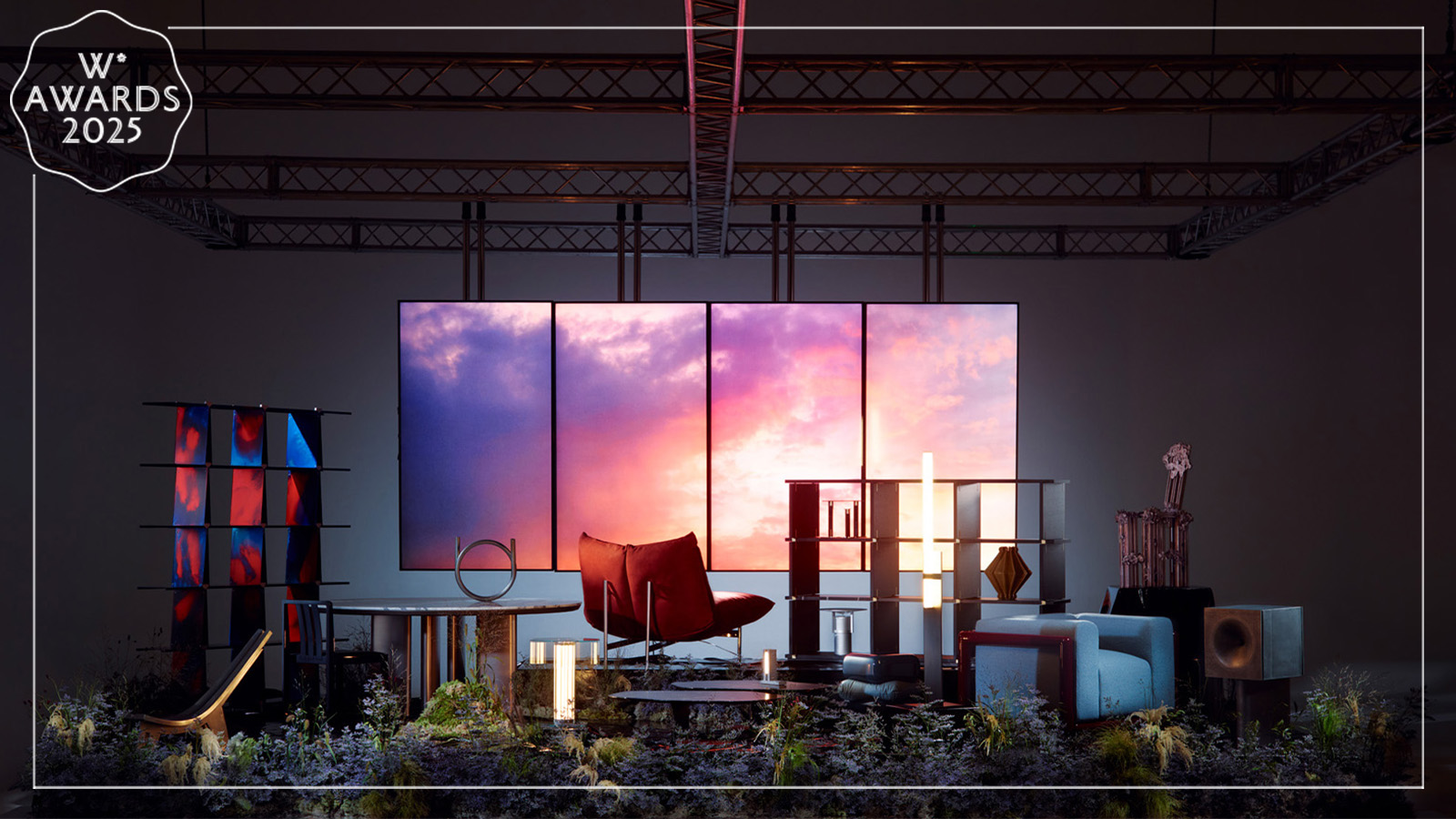
It can feel a little trite attempting to parse trends in design. Design is a slower industry than fashion, and developments tend to be more gradual, with incremental change from year-to-year. This is why we talk about decades having a readable personality as movements, rather than seasons. That said, design responds to the present and heralds the future, and it is always an interesting lens through which to view the forces and values that shape our lives and lifestyles at any given moment in time. In place of trends, it feels more appropriate to call these shifts.
Watch: global design director Hugo Macdonald and head of interiors Olly Mason on design worth celebrating
The shifts we’ve noticed in the past year stem from a combination of factors that are symbiotically connected. The world is a pretty scary place at the moment, and the sanctuary or sanctity of home is keenly felt. Comfort is hardly a trend, but we note the abundance of generously upholstered furniture entering the market. Examples that caught our eye include Hannes Peer’s ‘Pillow’ chair for Baxter, an outrageously cosy piece of furniture, as its name suggests. Faye Toogood’s ‘Squash’ collection for Poltrona Frau is playful, comfortable and utterly delightful.
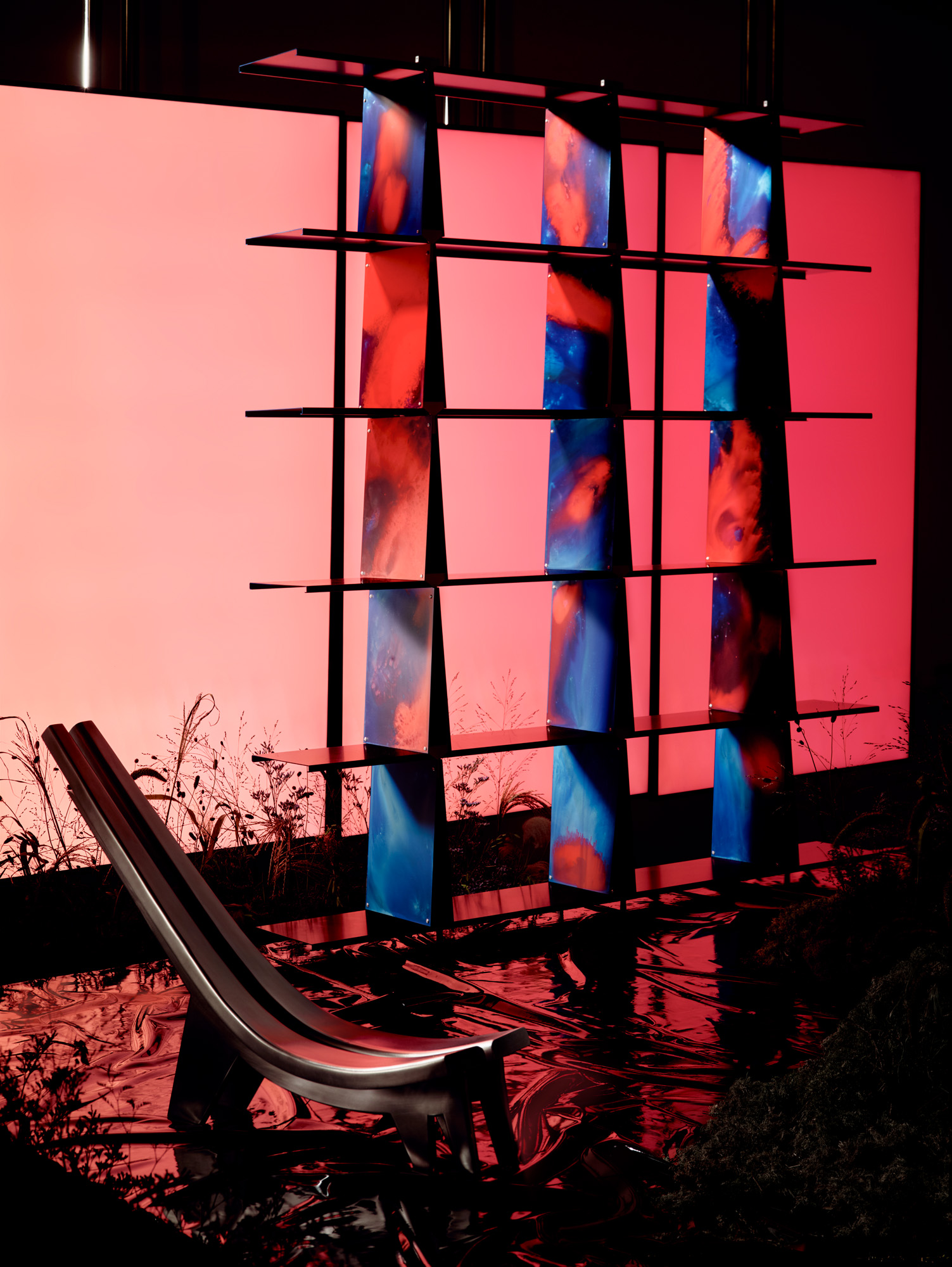
Cassina returned Carlo Scarpa’s 1973 ‘Cornaro’ armchair to production – a beautifully bouncy padded room within a frame. We welcome this great ensoftening of seating; our busy minds and tired bodies deserve some plush pliability in place of the sharper forms and harder edges that we inherited from modernism and its offspring.
For all of their louche appeal, there is a resounding elegance to these pieces, and this handsome mood was prevalent in more structured furniture, too. Michael Anastassiades’ richly lacquered ‘123’ chair for Molteni & C has an almost liquid quality to it. The exquisite stone surface of Jean-Marie Massaud’s ‘Adrien’ table for Poliform is a strikingly smart, grown-up anchor for any space. Meanwhile, Giampiero Tagliaferri’s ‘Ethan’ coffee table for Minotti has an organically shaped surface that appears to float on its chrome-plated base. Jialun Xiong’s ‘Kaleidoscope’ side table, in tempered glass and aluminium, has an Eileen Gray-level of industrial sophistication.
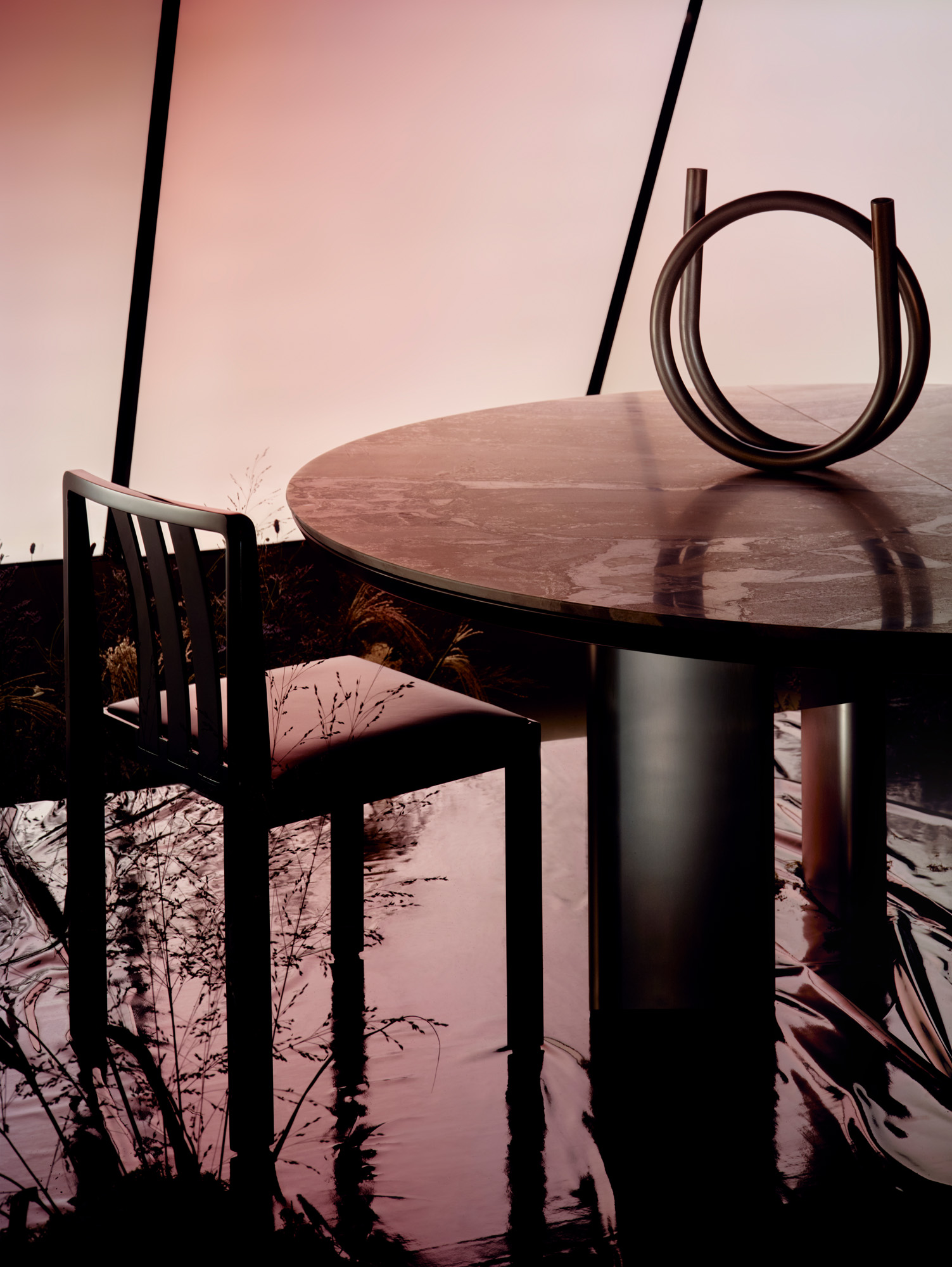
To call these works ‘timeless’ would be lazy, but they definitely have a contemporary heirloom quality that rises above fashion or trend. They achieve that rare balance of quiet charm and archetypal confidence with vivid material expression. Clever, beautiful and eminently easy to live with for a lifetime or two.
Intriguing material developments and applications were in plentiful supply this year, as the quest continues with ever-more commitment from the design industry to find better, smarter, healthier solutions to replace our wanton ways.
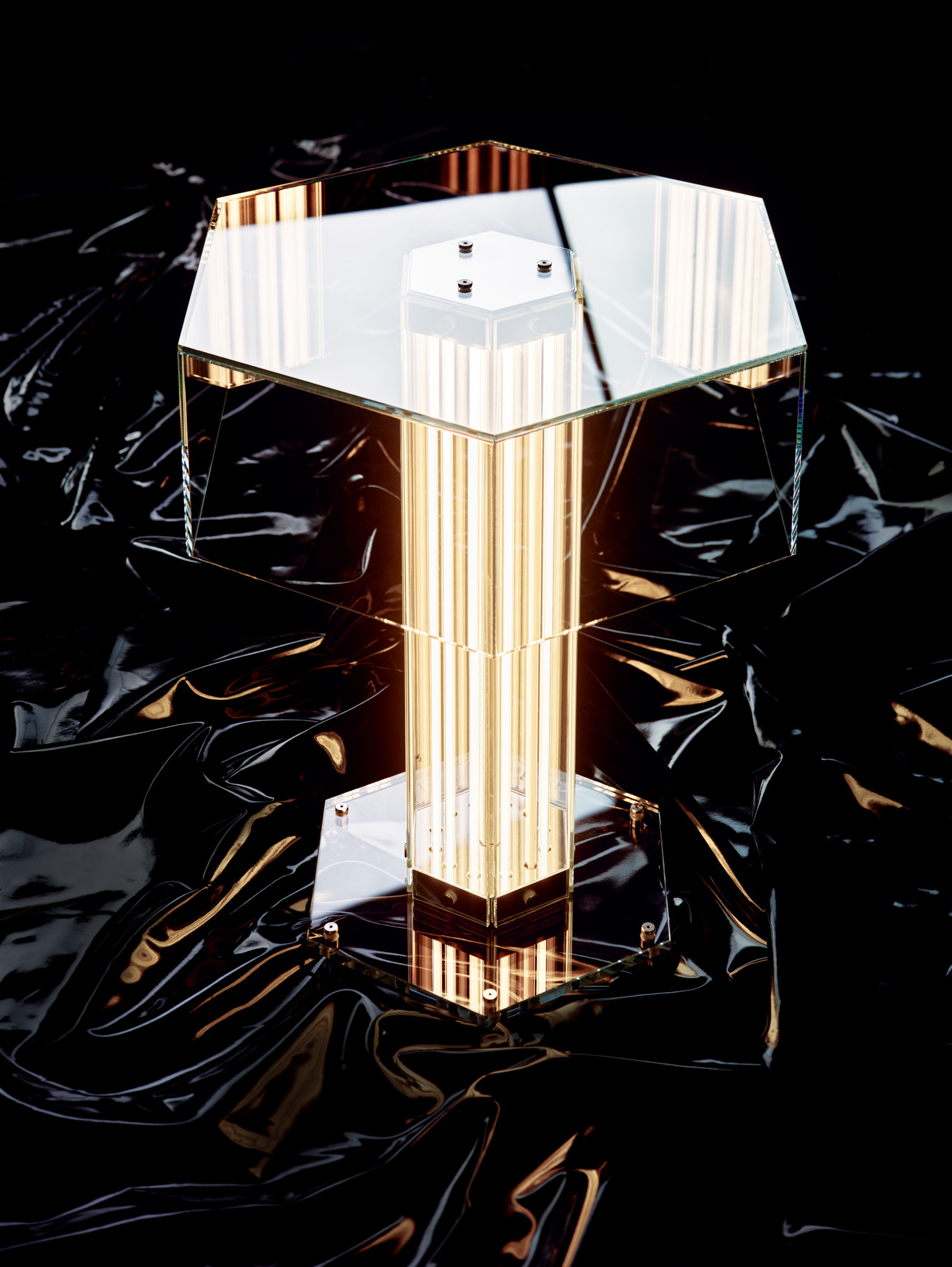
The ‘Gathering’ lamp, by Faber Futures, is a beguilingly brutalist object made from biomanufactured materials. Sheyang Li’s spectacular ‘Aluminium Cast Connection’ chair is made from an industrial construction component, with joints forged by melting and forming the same material.
One of the more stellar discoveries of the year for us was Raphael Kadid’s ‘Philae AL’ modular bookshelf. In collaboration with surface technology firm BWB, each aluminium panel was hand-anodised to form a surface treatment that resembles abstract landscapes. Kadid was inspired by aerial photographs of bauxite mining sites. Bauxite is the world’s primary source of aluminium and the humble bookshelf thus becomes an ode to its mineral origins. Ingenious, poetic, ethereal, otherworldly.
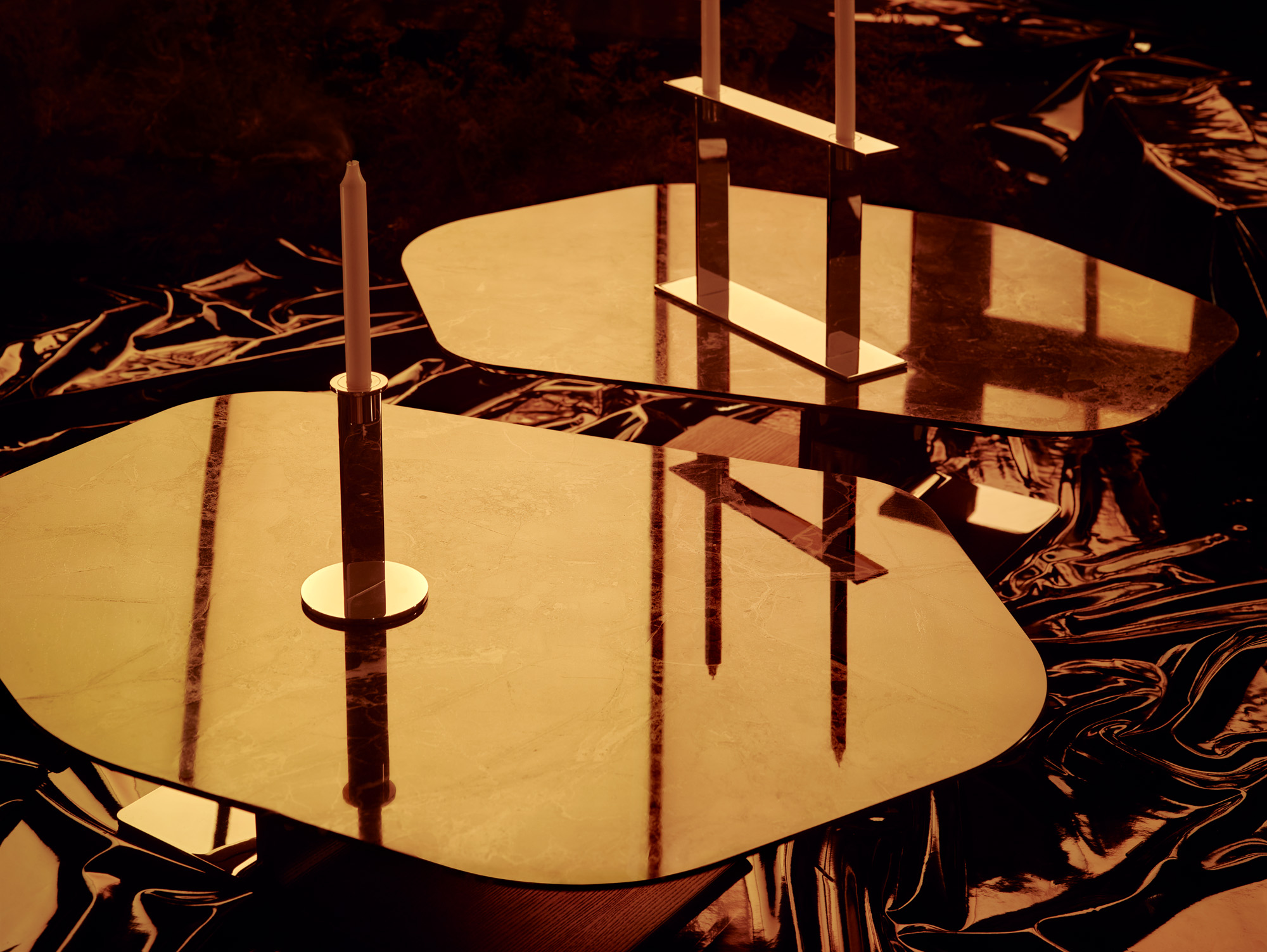
A current seam in design that we are particularly enjoying is the celebration of analogue qualities, surely in response to the overcomplication of our increasingly digitised lives. There’s an empowering quality to living with furniture when you can read how it has been constructed and – deep breath – perhaps even assemble, fix or repair it yourself. If Ikea immediately springs to mind, think again – this low-fi movement is increasingly high spec. Anastassiades’ ‘Card’ bookcase for Molteni & C is effortlessly assemblable, while Formafantasma’s mesmerising ‘Superwire’ collection for Flos is a genius component system of glass tubes, each containing an LED light source, which can simply be clipped in and out to allow easy repair.
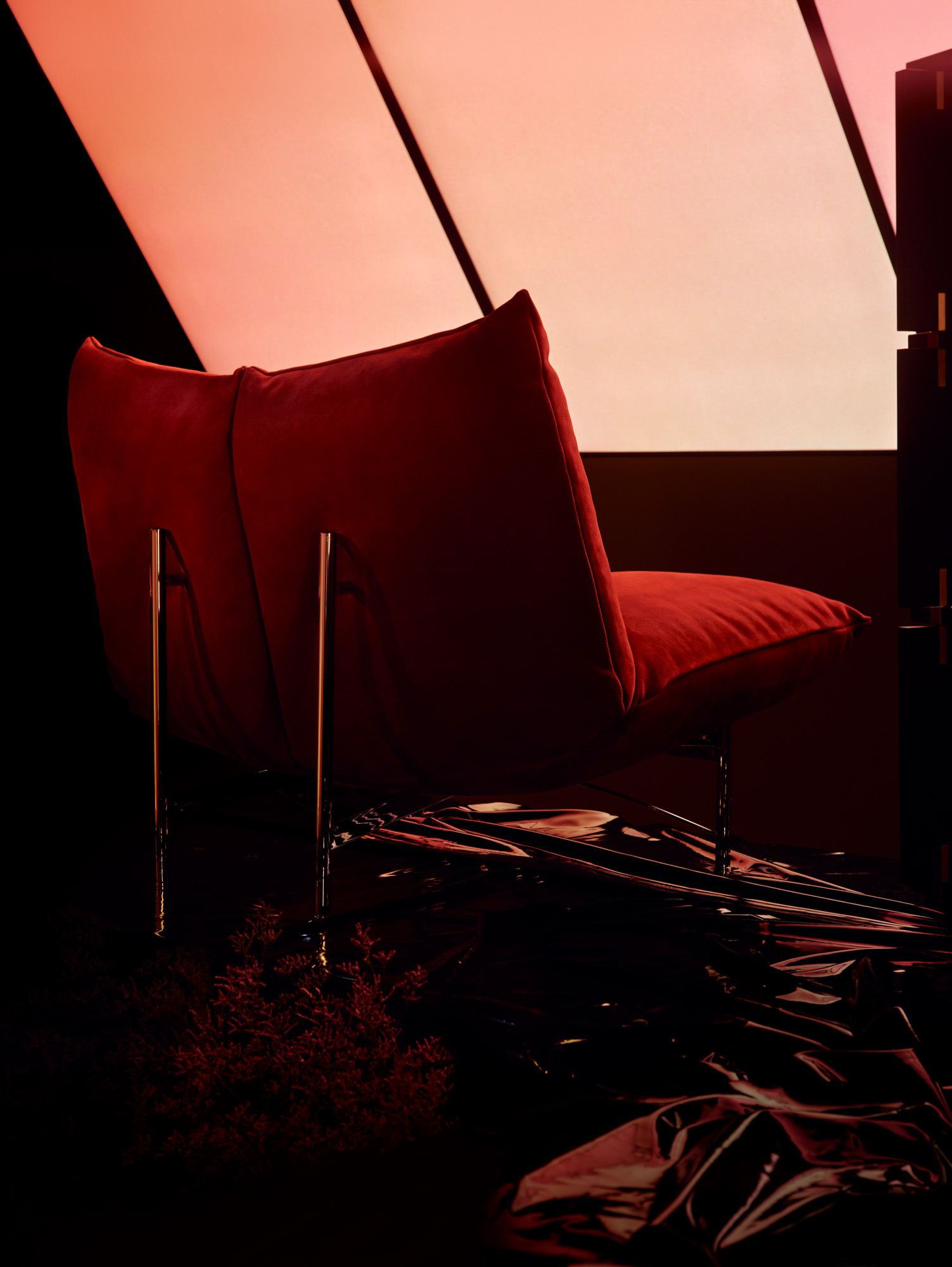
We could play all day with Jamie Wolfond’s aluminium ‘Set’ table lamp for Muuto; the shade reflects the light source and can be rotated up and down like a hefty corkscrew to manage your desired light intensity.
We were similarly tickled by the easy joy of Anna Karlin’s ‘Post’ floor lamp, which comprises just an illuminated tube strapped to a steel base. Complexity can be overrated.
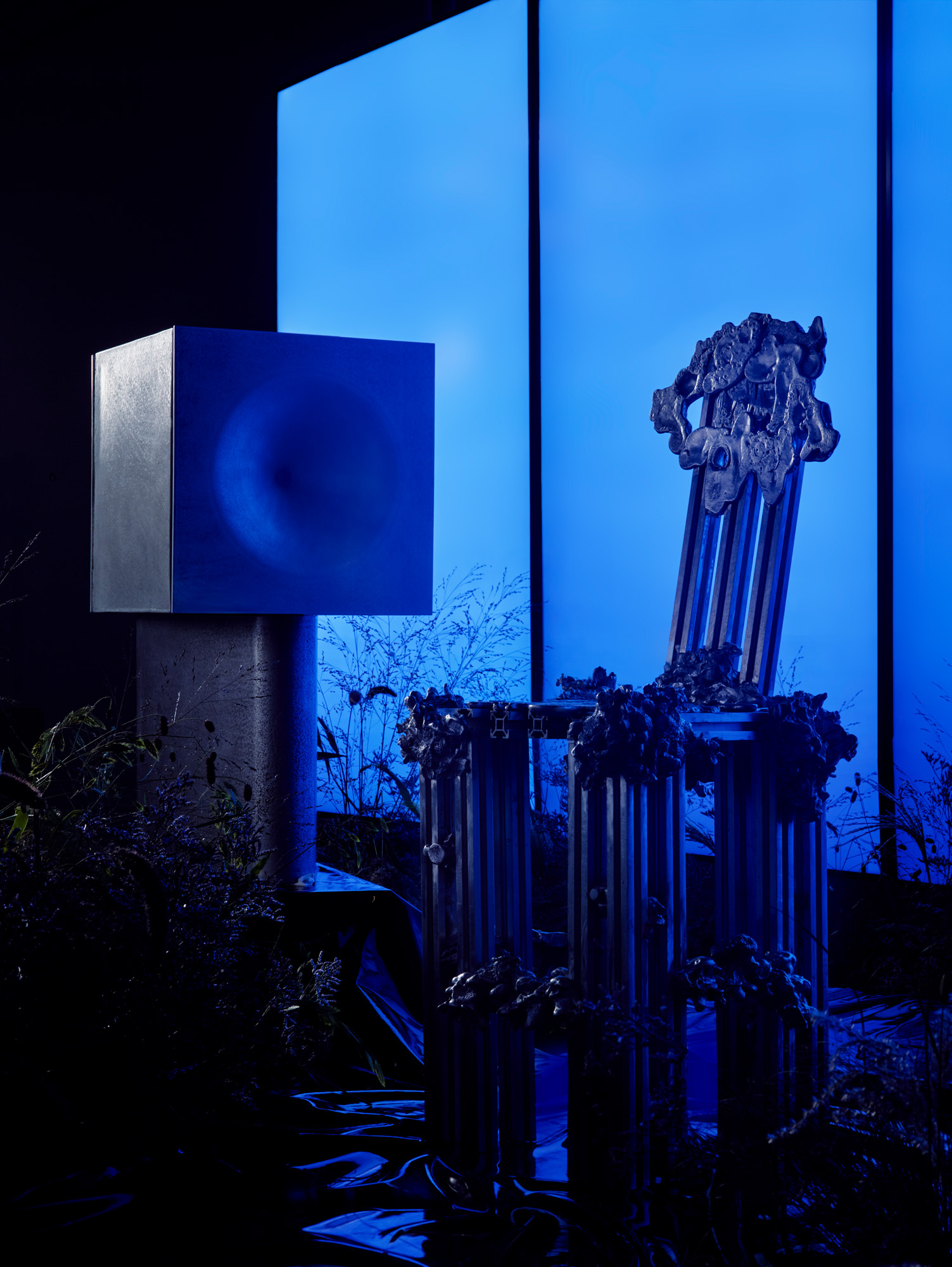
Objects of a ritualistic function abound at the moment, which we understand as a consequence of paying closer attention to the quotidian domestic acts, turning mundane activities into moments of more ceremonial enjoyment.
We have chosen to highlight Barber Osgerby’s magnificent ‘Pilotis’ candlesticks for Puiforcat and Soft-Geometry’s steel vase, inspired by the fluid curves of the Malayalam alphabet. Both have a soothing serenity and, though we cringe to discuss mindfulness in the realm of lighting candles, there’s no denying they bring a meditative presence to any tabletop.
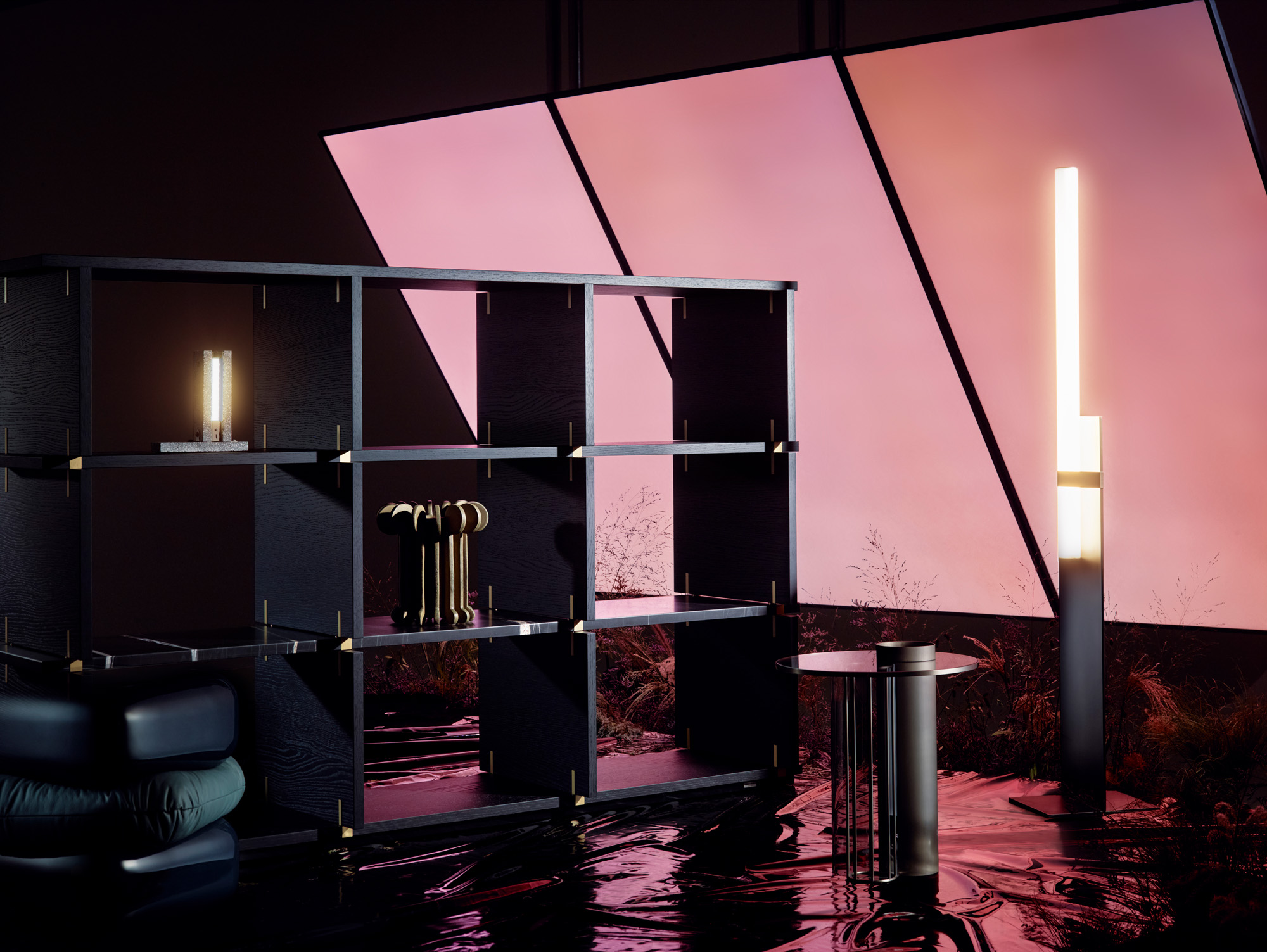
If it’s all getting a little earnest, take note of Tom Fereday’s sand-cast aluminium speaker for Pitt & Giblin, a veritable beast that puts the woof in subwoofer. Devin Wilde’s sculptural ceramics have a similarly powerful presence with their ancient cosmic forms and tactile glazes.
We round out our hoard of awards with Giles Tettey Nartey’s ‘Serwaa’ chair, a reinterpretation of the West African Lobi stool, here made from welded aluminium.
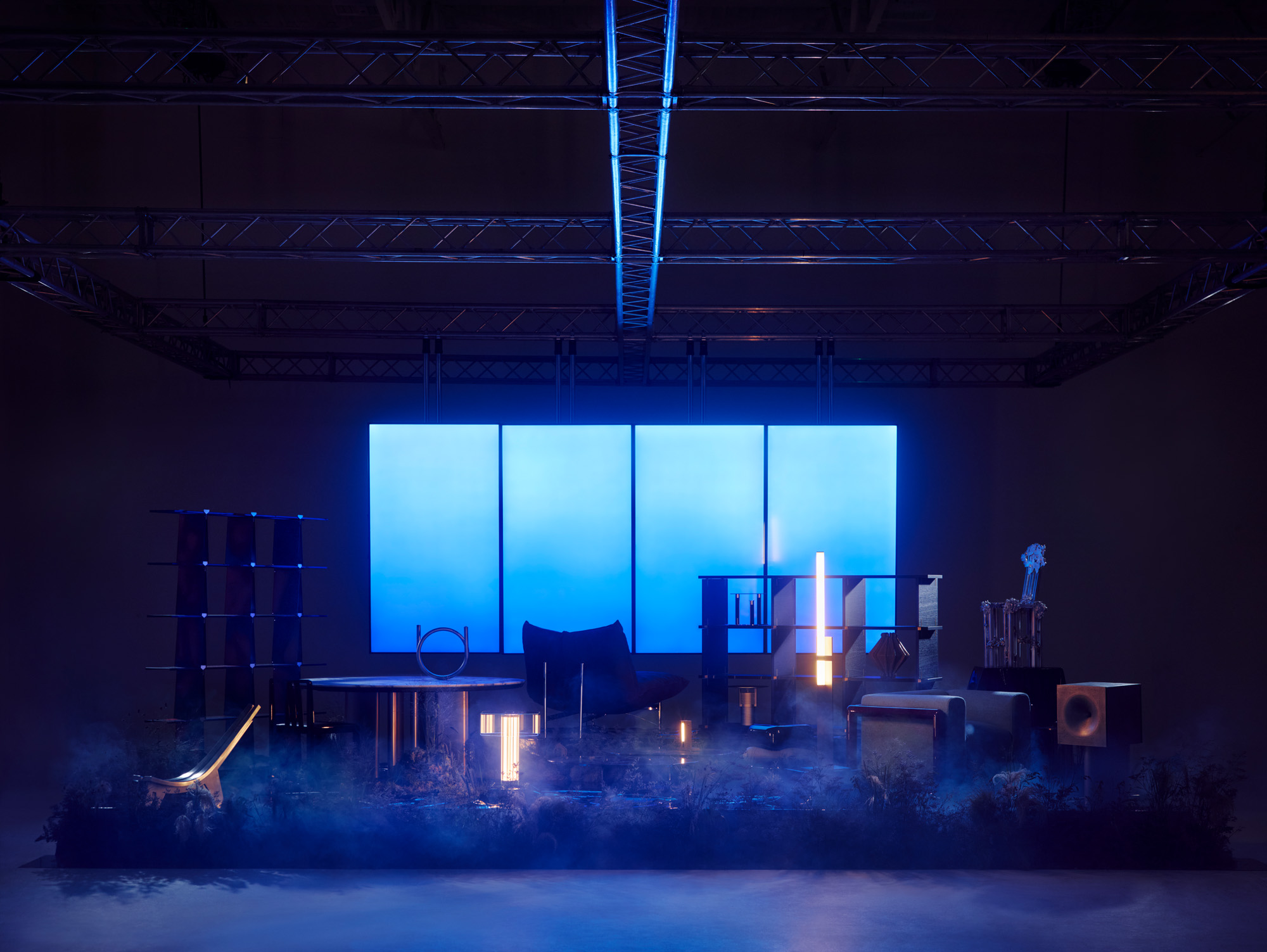
The surfacing of stories, ideas and voices that have gone unheard by our Western-centric design industry is an ongoing endeavour. With ‘Serwaa’, Nartey has reimagined the Lobi stool as an industrial creation, taking it out of its vernacular craft context and inserting it into the canon of idolised 20th-century furniture. An extraordinary sculptural object in its own right, it encapsulates the special power of design to bridge time and place, inviting us to ask questions about where we have come from and where we want to go.
A version of this article appears in the February 2025 issue of Wallpaper* , available in print on international newsstands, on the Wallpaper* app on Apple iOS, and to subscribers of Apple News +. Subscribe to Wallpaper* today.







